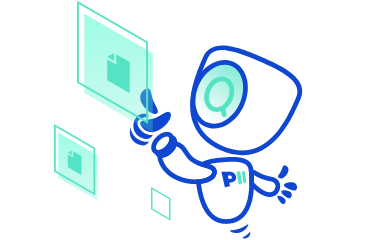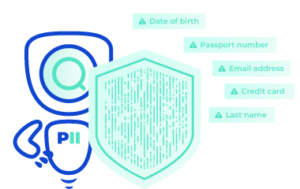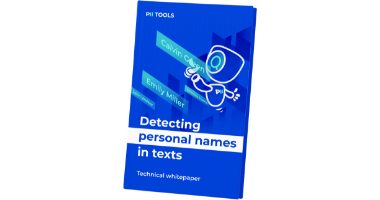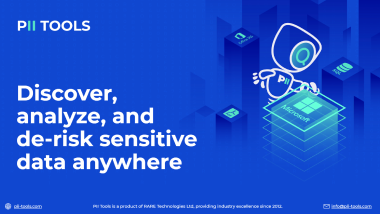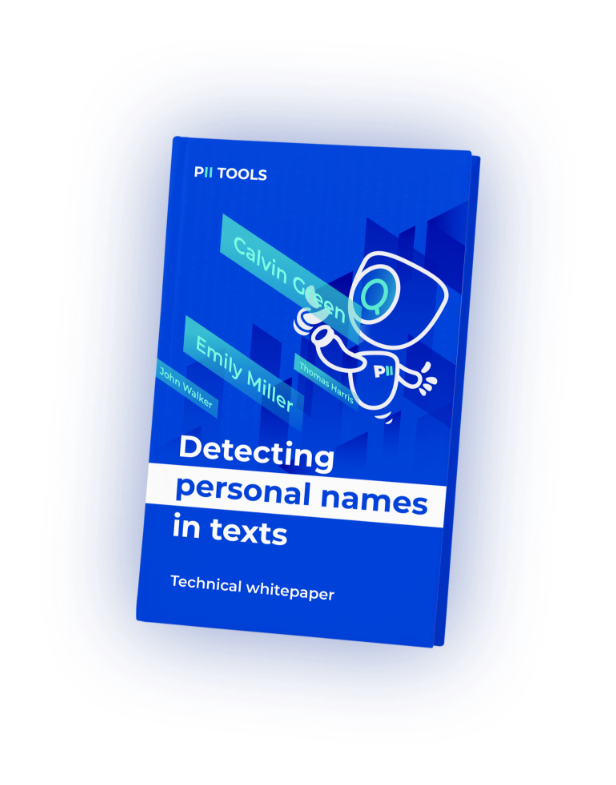You’ve heard stories of companies running into trouble by not maintaining PII compliance and suffering severe legal ramifications. But what does that mean for you?
Out of all the data you have, you’re sure you don’t have any PII lurking around in unwanted or even unlawful areas, right…? Ready or not, your next scheduled PII audit is around the corner. Time to get prepared.
The What
Let’s start from square one: What exactly is a PII audit? PII, of course, stands for Personally Identifiable Information. In other words, it’s any data or information that can be related to an individual, be it an employee, customer, partner, etc., ranging from names and addresses to the more serious passport information, health records or financial identifiers.
As a business owner, your job is to protect any PII that comes your way. You may think you have already taken the necessary steps to ensure all the data in your company is secure, but there are many ways that information can fall through the cracks. An audit of all your company files, emails, and cloud will highlight any places that hold PII that shouldn’t as well as display any possible chinks in your armor (i.e. folders accessible by too many people, systems with weak security, and so on).
The Why
Now, it’s safe to say that most companies, yours included, do their best to protect PII and store it in the correct locations. What if, however, your company is so large, with new employees gaining new access to new areas every day, that now there’s a risk of personal data falling into the wrong lap?
Although, this may seem like a simple enough issue to cover (especially for smaller businesses), the consequences of falling short in your duties to protect other people’s data could be heavy and far-reaching. It doesn’t take long to find examples of this in the news. Just ask Facebook… 763 million users left exposed and a $5 billion fine.
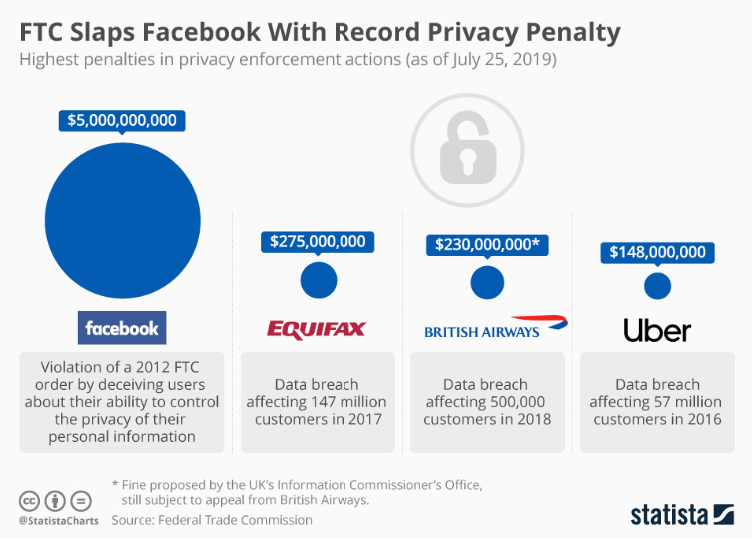
Source: Statista
Just because your business isn’t the size of Facebook, doesn’t mean it can’t also succumb to regulatory penalties. Oftentimes, company audits are scheduled without any warning, so it’s always better to perform one in-house first and fix any issues that may come up.
The How
That’s where PII Tools comes in. We offer software that automatically sifts through your storages, searching for any red flags in the form of sensitive data, and even improving your internal processes to protect information and mitigate risks. And the best part is all of this is done at the push of a button and at the hands of a professional auditor, with no need for you to get involved, learn any special code, or moderate its progress.
And it doesn’t stop there. PII Tools is capable of scanning over 400 different file types, from Office 365 to MacOS and everything in between. You’re sure to also appreciate receiving detailed reports regarding your storage and the severity of the PII found there. This gives you the opportunity to act without hesitation, delete or quarantine that data or limit the users who have access to it.
A One-Stop Solution
PII auditing is only becoming more and more imperative as the global economy evolves. Anyone caught still using their old ways is at risk of leaving sensitive data unprotected and vulnerable to breach incidents and subsequent fines.
Be ahead of the curve and perform in-house audits right now with PII Tools. Our software ran by an experienced professional will do the heavy lifting for you, automatically uncovering data compliance issues, alerting you to any risks, and helping you organize information in a new, secure way. Use PII Tools to scan your files today and armor yourself for the future.
Audit your data with PII Tools. Learn more about Audits & Compliance!
